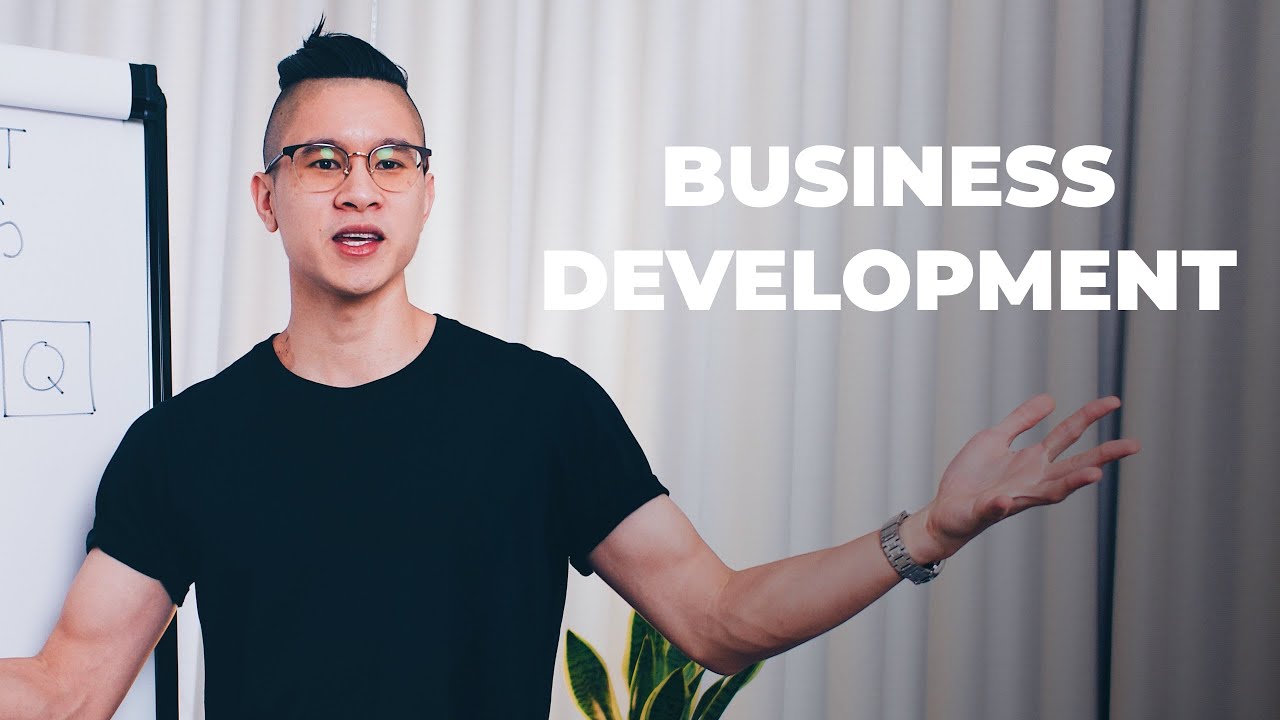Business Development - Day In the Life in Business Development
Summary
TLDRThis video by Patrick Dang offers an insightful look into the daily life of a business development professional. It covers the importance of prospecting, identifying ideal customer profiles, conducting meetings to qualify prospects, and the differences in approach between small-medium businesses and enterprise deals. The video also highlights the role of business development in product feedback and innovation.
Takeaways
- 😀 The primary role of a business development professional is to prospect, which involves finding potential partners and setting up meetings to discuss potential collaborations.
- 🔍 Prospecting is crucial as it forms the foundation for generating meetings and appointments, which are essential for business development activities.
- 🏢 For beginners in business development, a significant portion of their day, up to 90%, is dedicated to prospecting and identifying potential clients.
- 🤔 Defining an ideal customer profile is a key aspect of prospecting, which may require creativity and initiative, especially if the company's leadership does not have a clear idea of the target audience.
- 💼 Business development meetings are similar to sales meetings, focusing on understanding the prospect's challenges, aspirations, and blockers to determine if a partnership can be mutually beneficial.
- 📈 The nature of business development can vary greatly, from high-volume deals with small and medium businesses to fewer, more complex enterprise deals that can significantly impact a company's revenue.
- 🍔 An example of enterprise-level business development is Square's partnership with Shake Shack, where Square's software and hardware are integrated into Shake Shack's self-serve ordering system.
- 🤝 In business development, collaboration with multiple parties is often necessary to create custom solutions and integrate systems, as seen in the case study involving Square, Shake Shack, and the agency Fuse.
- 💡 Business development professionals must have strong presentation and pitching skills to differentiate their company from competitors and convince potential clients of the value of their offerings.
- 📊 The role also involves providing feedback to the product and leadership teams based on customer interactions, helping to shape the company's product development and strategy based on real-world customer needs and feedback.
Q & A
What is the primary focus of the video?
-The video focuses on providing an inside look at the day-to-day life of a business development professional, helping viewers understand if a career in business development is right for them.
What is the first step in the business development process?
-The first step in the business development process is prospecting, which involves finding potential partners and generating appointments or meetings to discuss potential collaborations.
Why is prospecting so crucial in business development?
-Prospecting is crucial because without generating meetings and appointments with potential customers, there can be no business development. It's essential for establishing connections and opportunities for collaboration.
What percentage of a business development professional's day might be dedicated to prospecting at the beginning of their career?
-At the beginning of their career, a business development professional might dedicate up to 90% of their day to prospecting.
What is an 'ideal customer profile' and why is it important in prospecting?
-An 'ideal customer profile' is a definition of the type of customer a business should be targeting. It is important because it helps business development professionals focus their efforts on the most promising prospects and tailor their approach accordingly.
What are some industries that a business development professional might target?
-A business development professional might target industries such as casinos, e-commerce, real estate, finance, or cryptocurrencies, depending on the services they are offering and the use cases that fit these industries.
What is the role of a business development professional in meetings with potential clients?
-In meetings with potential clients, a business development professional is responsible for qualifying the prospect, understanding their challenges and aspirations, and determining if a partnership would be mutually beneficial.
How does the business development process differ between small-medium businesses and enterprise deals?
-In small-medium businesses, the process might involve high-velocity meetings with individual shops or retail stores, focusing on volume. In contrast, enterprise deals might involve fewer meetings but require more intricate and complex negotiations, often taking longer to close.
Can you provide an example of a business development deal involving Square and Shake Shack?
-An example of a business development deal could involve Square working with Shake Shack and an agency like Fuse to create a self-serve ordering system using Square's point of sale technology, enhancing customer experience and streamlining payment processing.
What are some skills a business development professional needs to succeed?
-A business development professional needs skills such as effective communication, empathy, presentation and pitching abilities, the ability to build trust and rapport, and the capacity to provide feedback to product and leadership teams based on customer interactions.
What is the significance of a business development professional's role in product development?
-A business development professional plays a crucial role in product development by providing feedback and insights from customer interactions, helping to shape the product to meet market needs and solve customer problems.
Outlines

هذا القسم متوفر فقط للمشتركين. يرجى الترقية للوصول إلى هذه الميزة.
قم بالترقية الآنMindmap

هذا القسم متوفر فقط للمشتركين. يرجى الترقية للوصول إلى هذه الميزة.
قم بالترقية الآنKeywords

هذا القسم متوفر فقط للمشتركين. يرجى الترقية للوصول إلى هذه الميزة.
قم بالترقية الآنHighlights

هذا القسم متوفر فقط للمشتركين. يرجى الترقية للوصول إلى هذه الميزة.
قم بالترقية الآنTranscripts

هذا القسم متوفر فقط للمشتركين. يرجى الترقية للوصول إلى هذه الميزة.
قم بالترقية الآنتصفح المزيد من مقاطع الفيديو ذات الصلة
5.0 / 5 (0 votes)






